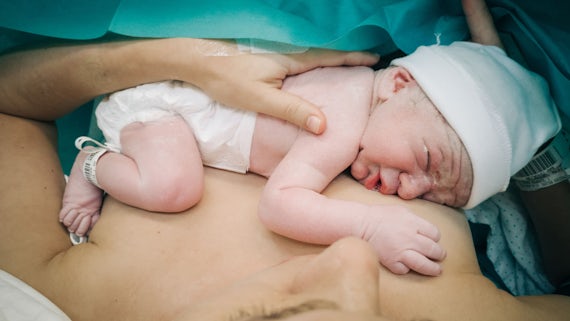Experts design and build sustainable operating theatres

Healthcare specialists, academics and industry are collaborating with Cardiff University experts to design and build sustainable operating theatres.
The pioneering project aims to reduce the carbon footprint of operating theatres, which typically make up 20-30% of a hospital’s carbon footprint.
Accelerate is funding the collaboration which brings together Cardiff University, Cardiff and Vale University Health Board, University of Wales Trinity Saint David, Cenin Renewables, Medtronic, Nuaire and BIPVco.
UK hospitals produce more than 5 million tons of waste each year. The project aims to support Wales’s ‘zero carbon’ goals and improve environmental conditions for medical staff and patients including comfort, cleanliness, and the reduction of cross-infection.
The 18-month project brings together experts including theatre practitioners, designers and sustainability build specialists.
A typical future operating theatre developed by the partnership will incorporate a low energy design, efficient mechanical services for heating, cooling, ventilation and lighting, and building-integrated renewable energy generation and energy storage. It will also consider waste handling and minimising waste production, including those of anaesthetic gases.
“Through Accelerate support, we have been able to apply our energy positive approach, developed through previous Low Carbon Research Institute WEFO funding, to this interesting building type. We will be looking for a zero-carbon performance, but also considering other sustainability aspects, including waste management and a high quality internal environment.”
The project has brought theatre staff together to focus on architectural construction, design features and ergonomics, and, anaesthetics and waste. The subsequent design, construction and evaluation will be overseen by a dedicated project officer, who will facilitate the delivery of tangible outcomes.
Potential project outcomes include future collaborations between industry, academic and clinical partners; changes in clinical practices and future builds of this innovative, sustainable theatre across the NHS and beyond, plus training for NHS staff, academic publications and case studies.
Read the published case study

The future of sustainable operating theatres
A case study to design and build sustainable operating theatres.
If this document cannot be read by your assistive software, you can request an accessible version by emailing web@cardiff.ac.uk. Please include the assistive tools you use and the format you require.
Our research creates benefits across health, society and the economy.

